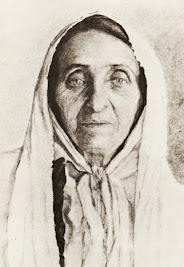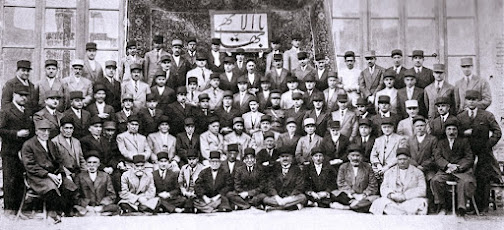From our doors nobody was ever turned away; the hospitable board was spread for all comers …
Whilst the people called my Father 'The Father of the poor', they spoke of my mother as 'The Mother of Consolation', though, naturally, only the women and little children ever looked upon her face unveiled…
One day I remember very well, though I was only six years old at the time. It seemed that an attempt had been made on the life of the Shah by a half-crazy young Babi.
My father was away at his country house in the viliage of Niyavaran, which was his property, the villagers of which were all and individually cared for by him.
Suddenly and hurriedly a servant came rushing in great distress to my mother.
'The master, the master, he is arrested - I have seen him! He has walked many miles! Oh, they have beaten him. They say he has suffered the torture of the bastinado! His feet are bleeding! He has no shoes on! His turban has gone! His clothes are torn! There are chains upon his neck!’'
My poor mother’s face grew whiter and whiter.
We children were terribly frightened and could only weep bitterly.
Immediately everybody, all our relations, and friends, and servants fled from our house in terror, only one man servant, Isfandiyar, remained, and one woman. Our palace, and the smaller houses belonging to it were very soon stripped of everything; furniture, treasures all were stolen by the people.
Baha’u’llah’s brother, Mirza Musa., who remained faithful throughout his life, helped the distraught mother and her three children to escape and found them a small house near the prison where they could remain in hiding. Asiyih Khanum [Baha’u’llah’s wife] gathered what small treasures she could, such as the gold buttons on her wedding dress, and sold everything to provide money to pay the gaolers to take food to Baha’u’llah and to keep the family alive.
- Bahiyyih Khanum (Quoted by lady Blomfield in 'The Chosen Highway'; David Hofman, 'Baha’u’llah the Prince of Peace')






























